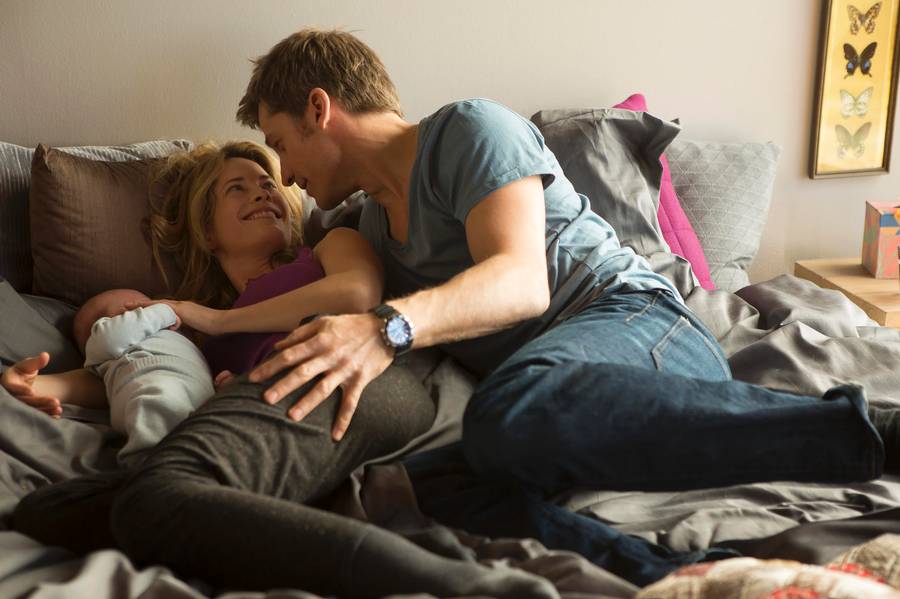I absolutely love Susanne Bier's After the Wedding and In a Better World. I try to keep track with her career as a movie director because of those two, but it is not always easy.
A Second Chance (En Chance Til) was a confusing movie for me. Its subjects and performances are great, but a problem is presented by its main plot: could someone act like that, even in a time of despair? Rodrigo and I were questioning the plot from the start, criticizing characters and storyline. To say the least, we were pretty angry in fact. I understand how an author can loose his hand in telling a story, becoming more of a lecturer and less intuitive in the course of their careers. It is always a sad thing to witness, though.
Still, in the course of this Denmark/Sweden 2014 production, we were more or less able to leave this behind in order to focus on what was being debated there, and it was a lot. The glue to all the subjects were how humane they all were. And so we decided to move away from the incongruous plot and listen to what was being said behind it.
It reminded me Lionel Shriver's must read We Need to Talk About Kevin (The movie didn't get to the point, I think). The pursuit for a perfect life, a perfect family, the need to achieve that can overcome more fundamental and urgent needs, such as the awareness of what is really happening inside our private and familiar environment. This pursuit can seriously blind us. Not look at that with open eyes can lead to tragic events, as we see in Shriver's story and in this one. Pretend that everything is perfect, especially when what is visible to the eyes is pretty amazing, is a sort of crime, with dreadful results.
One of the lessons here is: it can hurt to look at our true lives with clear and honest eyes, but pretend that everything is ok can be even more hurtful.
Other aspect: to act under despair is also a guarantee for tragedy. We cannot take care of others' troubles - we can help, but not overcome them for those we love. The attempt to achieve that is humane, of course, but very stupid at the same time. In this movie, Nikolaj Coster-Waldau's Andreas excels in stupidity in a masterful way (I said we were angry). Slowly, we are able to relate to his reasons, but we never cease to question it. What he does is horrid, with terrible consequences for himself and others, and the fact that he acts like that under false pretenses (even if he is not aware of it) is even worse.
Reading this post, I'm feeling very judgemental, something that I try not to be most of times - if Andreas had been able to be less prejudiced, maybe he would have acted differently actually. Don't get me wrong, I understand his reasons actually. But, as I've said, the very premise of this storyline is moot, making judgement very easy. And its is even easier when we realize what Susanne Bier is defending here - at the end, i becomes clear that she shares some of Andrea's more judgemental features, even if she presents the great mess that these ideas can cause.
Our passionate reactions to the movie is a reflect of how it is relevant and deceptive all at once. We could not stop talking about what we were seeing, in great disbelief. At the end, though, I think we were less angry, more sensitized to Andreas's quest. At least until the awfully cheesy last scene, a doomed tentative of a redemptive lesson. What a waste, when we were finally getting along with this tragic and very humane story.
 |
| A Second Chance (En Chance Till). Directed by Susanne Bier. With: Nicolaj Coster-Waldau, Urish Thomsem (from Adams Aebler), Maria Bonnevie. Denmark/Sweden, 2014, 102 min., Color |
PS: Admission, 2013; Penny Dreadful, Season 2, episode 6, and others that I cannot remember anymore... too much television for a weak memory :)

That last scene really was a waste. Trying to explain too much, as you said, can spoil the movie experience.
ReplyDeleteI was going to write an afterthought to the post, but as you've commented, he attempt to explain too much can be a bummer, as was the case in this movie, especially on the (unnecessary) last scene. A good story excerpts too many explanations. An open space for the viewer (and readers) thoughts and own conclusions (and imagination) is always welcome. But I decided to comment, because, as you said to me earlier, this would have been the first point here :)
Delete